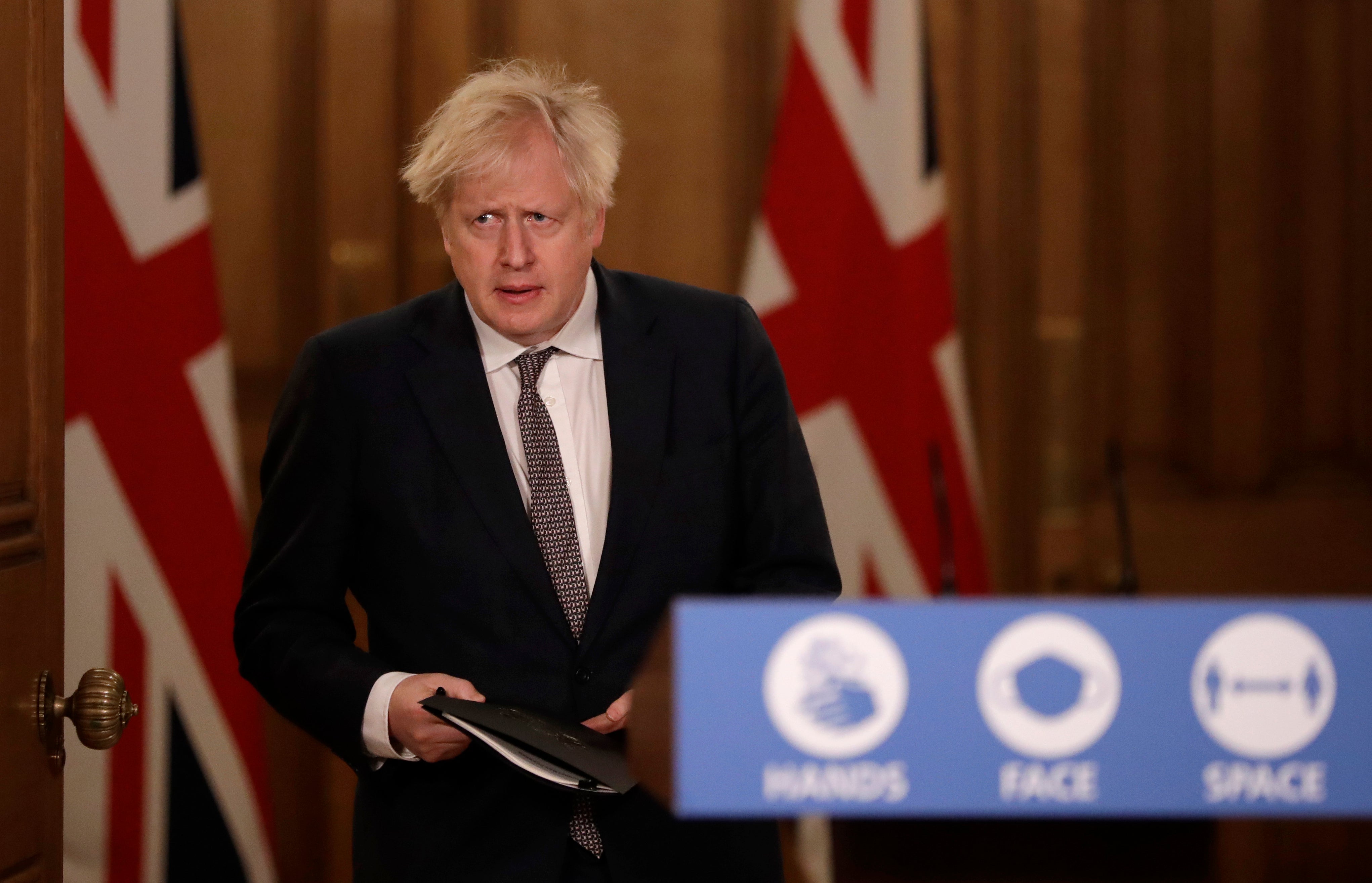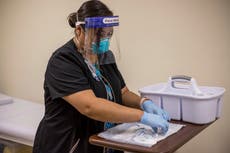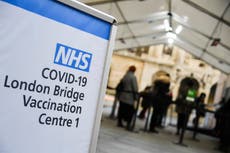The government needs to explain the vaccination programme with greater clarity and urgency
Editorial: As some fear the prime minister is ‘abandoning science’, the nation needs to be properly informed about our route out of the pandemic

The prime minister may not be the best person to tell us this, given his record of blustery and premature assurances that a corner was being turned and the virus sent packing, but the prospects for mass vaccination are hopeful.
So when Boris Johnson says, “We know there are challenges still ahead of us over the coming weeks and months, but I’m confident this is the year we will defeat coronavirus and start building back better,” we can be forgiven for focusing on the challenges still ahead of us rather than his confidence.
The immediate challenge is the faster spreading variant of coronavirus, and the difficult decisions about when schools should go back. But the start of inoculations with the Oxford vaccine tomorrow is a significant moment, and should act as a spur to urgent national mobilisation.
It is unfortunate that the launch should be clouded by controversy. Some doctors are complaining on behalf of their elderly patients that appointments for second doses are being delayed; there are doubts about the efficacy and ethics of giving second doses of a different vaccine; and there is rather too much attention being paid to the activities of fringe groups of vaccination conspiracy theorists.
The statement issued overnight by the health secretary, Matt Hancock, tries to deal with these controversies, but in such quiet and bureaucratic language that the essential message risks being lost. “The NHS is supporting GPs to reschedule appointments that had already been made as part of the effort to cut the number of people falling ill with Covid and save many more lives,” Mr Hancock says.
He and the prime minister need to be much clearer that this is a national emergency, and that many of the normal rules cannot apply. If we had all the time in the world, a second dose of the same vaccine would follow the first after about three weeks, but we have no time to lose. As Tony Blair argued in The Independent just before Christmas, the most important thing is to get as many first doses, which probably offer around 70 per cent protection, to as many vulnerable people as possible as quickly as possible. Everything else is secondary.
There is growing agreement around the world that this is the right approach. We were sorry that Anthony Fauci, the immunologist who will be Joe Biden’s chief medical adviser, said yesterday that he “would not be in favour of that”. It would seem that the US, even more than the UK, desperately needs more of Mr Blair’s urgency and clarity.
We would prefer to look to the example of Israel, which by throwing everything at the operation has already succeeded in giving first doses to 10 per cent of its population. This has entailed a certain amount of haphazard improvisation and confusion, but the task is getting done.
The speed with which the vaccine needs to be delivered means that perfection cannot be allowed to get in the way. With so many lives at risk, and no evidence of harm from spacing out the second dose, or from giving a different vaccine as a second dose, it makes sense to focus on the overriding priority. John Moore, a professor of virology at Cornell University in the US, accused British officials of having “abandoned science completely” and “just trying to guess their way out of a mess”. But it is not abandoning science to make reasonable assumptions when there is simply no time to conduct double blind randomised controlled trials.
The chief medical officers of the UK made clear in their letter to the medical profession on Thursday that they are convinced that the “first doses first” approach is the right one. The prime minister should ask Professor Chris Whitty and Sir Patrick Vallance, the government’s most trusted voices, to explain the policy to the nation.




Join our commenting forum
Join thought-provoking conversations, follow other Independent readers and see their replies
Comments